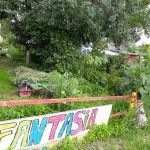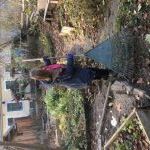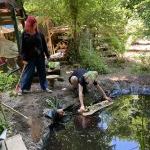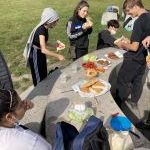Learning under the stars
In Vienna's public school "Lernwerkstatt Brigittenau" a shortage of space and a high density of students are daily challenges. That is why the school community founded the “Learning under the stars” club in 2013 and leased a plot of land in the Danube floodplain forest. This is available at all times of the year and accessible to all students. Depending on the age group, the focus ranges from experiencing nature to gardening together.
Website
Country
Media
Photographs by ILB Brigittenau, R. Zehetgruber
Useful links:
In the UK, Farms for City Children offer the opportunity for schools to spend a week to stay and work on a farm.
* TOP TIP*
Leave the classroom and visit a nature reserve to experience learning from a natural perspective
How is the project linked to climate change & sustainability?
Learning under the stars is intended to strengthen pupils understanding and appreciation of nature, as well as developing their practical and social skills through hands-on projects. By experiencing nature in its purest form, pupils develop an understanding and respect for the planet.
How are participants involved?
Pupils and teachers work in the forest and the garden and use it as learning place. Teachers, parents and the headmaster of the school founded the "Learning under the Stars" club to support this work.
For pupils of grade 1-3 the focus is on elementary nature experiences, free play and explorative, sensory learning.
For grade 4-6 the focus is on exploring habitats and nature.
Pupils of grade 7-8 stay for two-weeks in the wood. Practical and action-oriented projects are implemented. They created a biodynamic garden with a herb spiral, paths and a raised garden bed. A clay oven and a pergola were built to be used as a gathering place. A fireplace was built where all children can cook together.
Key steps
- Look for a piece of land or riparian forest that can be rented long-term. The community can help here.
- Start cultivating the land together with your students.
- Combine growing with nature experience and give pupils the opportunity to enjoy themselves in nature.
- Plan and implement each year new construction-projects with the students (e.g. outdoor-kitchen, pergola, clay oven)
- Work in progress: the project is allowed to develop further every year and is never finished.
The 'Nature Deficit Syndrome' and the added value of nature for humans are well known. This motivates us to bring the youngsters out into the forest and into the garden. Annika Hammer, teacher


.jpg)


